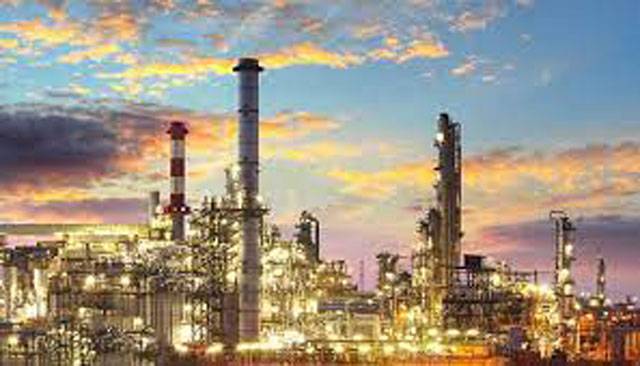ISLAMABAD-Minister of state for petroleum Musadiq Malik has said that investors planning to install a new refinery with a capacity of over 300,000 barrels per day will receive a 20-year tax holiday. Additionally, a deemed duty of 7.5 percent will be offered on the import of petrol and high-speed diesel for 25 years. For new refineries with a capacity of less than 300,000 barrels per day, a 10-year tax holiday and 7.5 percent deemed duty on petrol and diesel for 10 years will be provided.
Musadik Malik made these announcement while addressing a news conference here Wednesday. Musadik also announced that the government plans to finalize the oil refining policy (Brownfield) for existing refineries within two weeks. The policy aims to provide various incentives to the refineries as Pakistan’s demand for petroleum products is expected to rise to 33 million tons by 2032. It is worth mentioning here that the govt has already approved a new Greenfield oil refining policy, which aims to attract foreign investment to the country. The policy focuses on facilitating the establishment of a new deep-conversion refinery with a capacity to process 400,000 barrels of oil per day.
To encourage foreign investors, the government will offer tax exemptions and incentives to the refineries. The locations where the new refineries will be established will be designated as special economic zones, offering favorable conditions for investors. Investors in oil refining projects will be granted protection under the Foreign Investment Act 2022 to safeguard their interests. Minister Malik also highlighted the LPG Air mix policy as part of the government’s comprehensive energy strategy. This initiative aims to address areas with insufficient natural gas supply by utilizing the private sector to provide LPG (liquefied petroleum gas) as an alternative.The minister said that Pakistan’s annual demand for petrol and diesel is approximately 20 to 21 million. Currently, local refineries cater to around 10 to 11 million tons per year of the nation’s oil requirements, particularly with the decrease in consumption of furnace oil. “Our existing refineries have a refining capacity of 18 to 20 million tonnes per year. However, keeping in view the projected growth and increasing energy demands, it is estimated that Pakistan’s annual consumption of petrol and diesel will reach 33 million tonnes within next nine years.”
Regarding the import of Russian oil, the minister informed that a crude oil vessel from Russia is scheduled to arrive in Oman on May 27-28. From there, the oil will be transported to Pakistan via smaller ships which will take around two weeks to reach the country. The initial shipment will deliver 100,000 tonnes of oil.
Explaining the choice of an Omani port for anchoring the ship, the state minister stated that Pakistani ports lack the capacity to accommodate vessels carrying more than 50,000 tonnes of goods. Malik also emphasized the necessity of crude oil storage for the country’s energy sector. It is worth noting that Pakistan placed its first order for discounted Russian crude oil under a new deal between Islamabad and Moscow on April 20. Initially, Pakistan’s Refinery Limited (PRL) will refine the Russian crude, with other refineries to be included later after a trial run.
Saturday, May 18, 2024
Investors planning to install new refinery to receive 20-year tax holiday
Capacity of over 300,000 barrels per day

Sports & Genocide
May 18, 2024
Healing AJK
May 18, 2024
A New World Order
May 18, 2024
Tobacco Toll
May 17, 2024
Rushed Reforms
May 17, 2024
Continuing Narrative of Nakba
May 18, 2024
Teacher Struggles
May 18, 2024
No Filers out of Reach
May 18, 2024
Hoax of Inflation Coming Down
May 17, 2024
Rising Inflation
May 17, 2024
ePaper - Nawaiwaqt
Advertisement
Nawaiwaqt Group | Copyright © 2024





